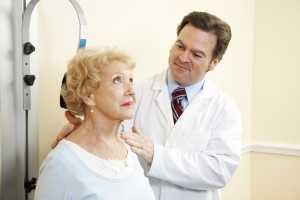Disclaimer: This website provides health information for educational purposes only and is not a substitute for professional medical advice, diagnosis, or treatment. Always seek the guidance of a qualified healthcare provider with any questions you may have.
 Every year, there are around 20 to 30 million people who suffer from injuries due to car accidents. By 2030, these injuries can become one of the leading causes of death unless people do something.
Every year, there are around 20 to 30 million people who suffer from injuries due to car accidents. By 2030, these injuries can become one of the leading causes of death unless people do something.
Among these injuries is whiplash.
Whiplash
Whiplash may refer to any neck injury due to abrupt forward, backward, or sideward movement of the head resulting in injuries in the tissues, ligaments, and tendons in the neck. In addition to pain and stiffness in the neck, the pain also shots through the arms, the shoulders, and the lower back. The Denver Integrated Spine Center says these symptoms may appear gradually hours after the accident.
Causes
Aside from road accidents, anything that can cause the head to jerk forward, backward, or sideward can cause neck injury. Examples are falling down or a sudden blow to the head.
Treatment and Management
There is no single treatment, medication-wise, for this condition. The main concern is reducing pain. To do this, the physician may prescribe drugs to help the patient with the pain. They usually prescribe analgesics like paracetamol, and NSAIDs like ibuprofen. They may also give the patient muscle relaxants and anesthetics like lidocaine to numb the painful feeling, especially for worse cases.
Other steps to recovery include:
- Resting. This is important especially for the first few hours after the accident. Resting for too long, however, may delay any improvement. Foam collars may help the patient get better rest. Put ice or warm compress to the neck for around 15 minutes to help ease the pain.
- Exercise. Contrary to popular belief, neck exercises and mobility can actually help speed up recovery, as long as they are gentle and mild. This keeps the muscles moving, avoiding weakening which may interrupt recovery.
- Physical therapy and chiropractic. Most are not familiar with the differences between these two because they both help in the improvement of the patient’s condition. Patients usually go for physical therapists, but chiropractors in Denver actually can do the same for pain management.
Massages and other complementary alternative medicines (e.g. acupuncture) may also help. Give your physician an update on whatever you do, especially if it involves your neck.



